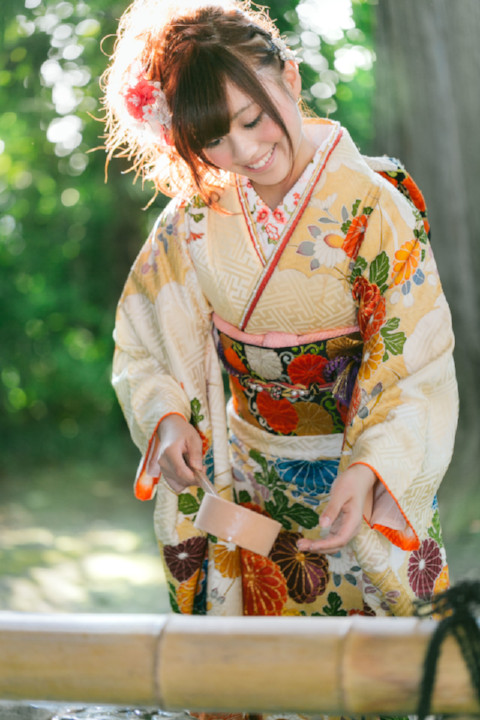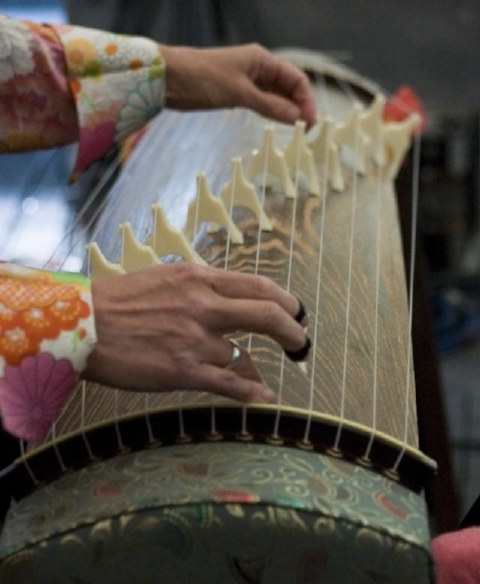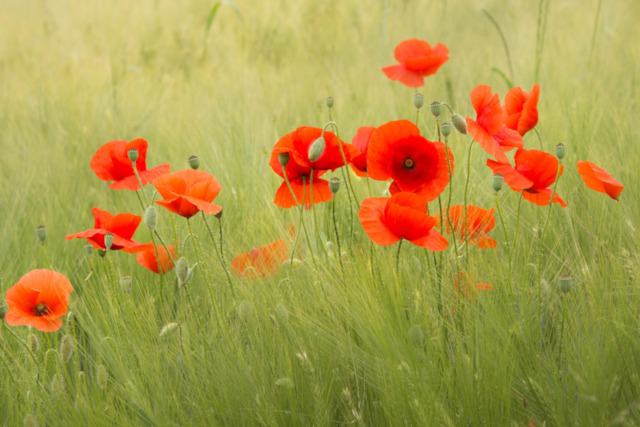[Calm & peaceful]
No.171 "Ue-wo muite arukou" by Midori Hara

A happy new year 2020.
Hope your New Year is filled with happiness.
Today's song is "Ue-wo muite arukou" (I look up as I walk) by "Midori Hara".
"Ue-wo muite arukou" is one of the classic song originally performed by "Kyū Sakamoto" in 1961.
This song is more well known as "Sukiyaki", which topped the chart on the Billboard Hot 100 in 1963 in the United States.
And "Midori Hara" is a singer who is popular for her unique & soulful vocal on her nice ballad-pop line up.
Links to the music shops, offering song samples, are located on the bottom of this page.
Some contents have been put away in tabs with " ▼ " marks in each section, so please click it to read.
The most of linked sites like youtube, or Apple music uses Java script. So, if you are visiting them , please turn the Java script on at your browser.
We are now working on improving appearances of our posts.
If you find anything odd, please kindly let us know.
Thank you.
Cover art today
Song data
| Title | Ue-wo muite arukou |
|---|---|
| Artist | Midori Hara |
| Album Title | "Aamar jabar" to ieta-hi |
| Catalog Number | CORR-10459 |
| Track No. | 3 |
| Duration | 3:39 |
| Released | 1989 |
| Publisher | Triad (Nippon Colombia) |
| Lyricist | |
| Composer | |
| Arranger |
About the creators
Rokusuke Ei Lyricist
Rokusuke Ei (1933-2016) was a radio personality, TV character, essayist, columnist, lyricist, and scenario writer active from 1952 to 2016.
"Ei" had been a popular personality, and opinion leader for his sharp, but humorous criticism against the unfairness in the society.
As a lyricist,"Ei" was active only in the decade of the 1960s, but wrote a dozen of super hit song in this period.
Early times
"Rokusuke Ei" was born in 1933 to a family running an ancestral Buddhist Temple in Tokyo.
In 1952, while he was a university student, he began to participate a writer's guild lead by a star producer "Torirō Miki".
"Ei" then went about working as a scenario writer, or MC at TV programs. And through these series of works, he started his professional career.
As a lyricist
"Ei" spent 7 years with the Japanese television of its early days, and contributed a lot to make it up and running.
In 1959, "Ei" was suddenly requested from one of his colleague, and a composer "Hachidai Nakamura" to write 10 songs together with him in one night. ("Nakamura was also ordered to do it from a movie studio")
Surprisingly, "Ei" and "Nakamura" successfully dealt with this hard task. And one of these 10 songs, titled "Kuroi Hanabira" (Black Flower Petal) was later released as a single record in 1959.
No one was expecting that this song became such a big hit, since "Ei" and "Nakamura" were both newbies in a music industry.
The number of disks initially pressed was only 2000, but eventually it sold more than a million.
This song received a grand prize of honorable "Japan record awards", and "Ei" and "Nakamura" were recognized as a talented creators.
"Ei" and "Nakamura" produced a series of big hit songs in an amazing pace in only 4-5 years time. A famous hit song "Sukiyaki" was also a creation in this period.
To see the list of songs, please have a look at "Ei"'s Wikipedia page.
"Ei" did not wrote thousands of lyrics, since he was working as a lyricist only for 10+ years from the early '60s.
But in that one decade, he wrote a significant number of hit songs next by next. And, one of the most well known one was "Ue-wo muite arukou, which was also known as "Sukiyaki".
His song is basically written in plain words. So they are friendly to the people, and everyone can listen, and sing.
But the world of his lyrics is elegant & poetic, and have character.
That might be the reason why his lyrics are timeless.
Popular personality
"Ei", however, stopped writing lyrics by the end of the '60s, and wrote only rarely after the '70s.
It seems there were several reasons, but afterwards, "Ei" began to concentrate on the jobs of radio personality, and essayist.
"Ei"'s radio programs were all popular, and the longest one was lasted for 46 years.
There is an excellent summary of him on Wikepedia. And the list of his notable song is also available on the same page.
So, please have a look at the Wikipedia page linked below for more detailed information.
-
(Ref: miyearnzzlabo.com,
Rokusuke Ei anecdotes)🇯🇵
Video clip
Lastly, here is a video clip of a song titled "Ikiru-mono no uta" (The song for living creatures) performed by a long popular male chorus group, "Duke Aces".
And the lyricist of this song was "Rokusuke Ei".
A 4-piece male chorus group, "Duke Aces", which ended their 62 years history in 2017, was one of the most loved choral group in Japan since its foundation in 1955.
Their harmony was so beautiful, but the songs were friendly and decent.
We reckon perhaps all the Japanese have ever heard their songs at least once.
This song, "Ikiru-mono no uta" (A song for living creatures) was originally sang by "Rokusuke Ei" himself, and released in 1975.
This time, "Duke Aces" chose this as a commemorating song for their 60th anniversary as a group.
If you like, please listen.
Hachidai Nakamura Composer
"Hachidai Nakamura" was a Jazz pianist, composer, and a member of a legendary Jazz group "The Big Four".
He is particularly well known by his series of hit songs in the '60s, which were created through teamwork, between a talented lyricist, "Rokusuke Ei", and him.
Early times
"Hachidai Nakamura" started his music career around 1949 as a dance hall pianist when he was a university student.
Already in 1951, "Nakamura" formed a Jazz band, and it quickly became popular. "Nakamura" was selected as the No.1 young Jazz pianist in the popularity poll conducted by the Japan's most influential Jazz magazine.
And in 1953, "Nakamura" participated in a legendary Jazz groups "The Big Four" as a original member together with 3 other expert musicians.
As a composer
In the late '50s, "Nakamura" began to work also as a composer.
"Nakamura" formed a team with a "chance-met" lyricist, "Rokusuke Ei". Since then, the team released a number of beautiful songs in a miraculous high pace. And quite a few of them became hit singles.
For the list of hit songs, please have a look at his Wikipedia page
More info
Japanese wikipedia provides a good summary on "Hachidai Nakamura". And a list of notable hit songs is also available on the same page
Please have a look at the page linked below for more detailed information about him.
Video clip
Lastly, we would like to introduce one of the Japan's standard song, "Tasogare-no Beguine" (Beguine in the twilight).
(* "Beguine" is a type of dance music, according to Wiki.)
This song has been covered by the various artists, after it was "discovered" by a legendary singer, "Naomi Chianki"
Today's video clip is also a covered version. Artist is a notable singer, "Sumire" (Sumire Matsubara).
This song was first written in 1959. "Rokusuke Ei" & "Hachidai Nakamura" was credited as the lyricist & composer respectively.
But according to a researcher, 'the fact was the lyrics was also a produce of "Hachidai Nakamura", so it was his song.' "Rokusuke Ei" told him.
"Sumire" or "Sumire Matsubara" is a popular, model, actor, and a pops singer.
A kind of multi talented artist, and a promising singer.
The musician playing the piano is a Latin Jazz Maestro, "Sérgio Mendes".
He has participated in this song as a producer.
If you like, please listen.
Tetsutaro Sakurai Arranger
"Tetsutarō Sakurai" is a guitarist, composer, arranger, music producer, and a leading member of a Pop-group, "Cosa Nostra".
Early times
"Sakurai" started his music career in 1986 by participating in an album production as a producer.
He continued to offer melodies, or song arrangements to the various, and supported their album creation as a producer.
And in 1991, "Sakurai" teamed up a new club music band, "Cosa Nostra" with 7 other active DJ's.
"Cosa Nostra (Band)"
Although there were a few in and out of the members,"Cosa Nostra" continuously released excellent albums to the club scene.
At the same time, members of the band actively interacted with the outside musicians around the scene, and supported them to create new sounds.
As a group, they are a little quiet recently, but we are all waiting their new release.
Song image & Lyrics
Open
Link to the lyrics
"Sukiyaki" (English version)
Copyright notice on the lyrics link
Sound impression
Calm & peaceful
The original version of "Ue-wo muite arukou" ("Sukiyaki"), is a medium-fast swing Jazz.
But this version is arranged in a calm, peaceful, and grand atmosphere in a slow 4/4 rhythm.
Calm and grand
The ensemble of an auspicious sound of the Koto, the bass, drums, keyboard, and handclap begin to play a calm and grand introduction.
In the bridge, a melodious solo play of the "Koto" creates a sunny, and hope-filled air.
The vocal of "Midori Hara" is a bit unique, but shiny and nuanced.
"Ue-wo muite arukou" ("Sukiyaki") has been covered by more than a hundred of different artists.
We have listened some of them in the past, and noticed that all of them were unique and nice.
But "Midori Hara"'s version is also equally impressive & inspiring, and we like it.
"Sukiyaki"
Today's song "Ue-wo muite arukou" (I look uo as I walk) was originally released in Japan in 1961.
The lyricist & composer were "Rokusuke Ei" & "Hachidai Nakamura" respectively, and the performer was a rising pop singer "Kyu Sakamoto".
Soon after the release, it became an amazing big hit, and stayed on the No.1 spot for 3 months.
What's rare about this song was that it was also released in the United States in a unique song title, "Sukiyaki" in 1963.
For more details, please have a look at this page on wikipedia (" Sukiyaki"). But this became a smash hit in the United States as well, and it finally hit the No.1 on the Billboard Hot 100 chart in 1963.
In more than 90 years of Japanese popular music history, this is the one Japanese song took the No. 1 spot on the Billboard Hot 100 chart.
The Koto
A striking feature of "Midori Hara"'s "Ue-wo muite arukou" is the use of the "Koto" in it's ensemble.
For the Japanese people, the sound of the "Koto" is very Japanese, and auspicious. Therefore, it is closely connected with the new year cerebration.
That is one reason we have chosen this song for today.
The player is unknown. We have checked the album, but the name was not credited.
About the artist
Midori HaraChic ballad
"Midori Hara" is a singer-songwriter, lyricist, composer, and a former member of a Club & Electronica band, "Spank Happy".
A unique, but very good vocalist, and particularly marvelous in soulful ballad.
"Hara" debuted in 1987 with a single, "Tsugunai-no hibi" (The days of expiation), which she duetted with a popular singer, "Kazuo Zaitsu".
Since then, 2 singles, and 7 original, plus 1 best albums have been released until now.
(Ref: Wikipedia-jp, Midori Hara)
Early times
"Midori Hara" started her music carrier by entering a public audition for new artists.
In 1986, "Hara" entered a regular audition held and sponsored by Nippon Colombia.
Luckily, she won the contest, and received an offer for debut from the record company.
And soon in the January 1987, "Midori Hara" was debuted by participating a very popular singer, "Kazuo Zaitsu"'s 4th solo single, "Tsugunai-no hibi" (The days of expiation), as a duet partner.
Just for your information, "Kazuo Zaitsu" is a leader of a popular, and long-active pop-rock group "Tulip" since 1971.
As a solo
In 1987, "Hara" released her first album "Mido".
It was a bit edgy pop funk album, and attracted core music fans.
In 1988, she released "KO・KO・RO・NOTE" as her second album.
Different from first album, this is a lot more modern & pop, and we guess this one was more widely accepted than the first one.
We too like this album, and wishing to introduce a song from this album in one day.
And in 1989, she released the 3rd album, "Aamar jabar to ieta-hi" (The day I finally said I am going.), which we are introducing today.
Ir might be a milestone like album for her, since the album was showing the direction she was going, which was soul.
Spank Happy
In 1992, "Midori Hara" took a break for solo activity, and formed a new-wave pop-rock group, "Spank Happy", with a Jazz saxophonist, "Naruyoshi Kikuchi", and a popular keyboardist, "Kōno Shin".
It seems that each members had a common interest on Jazz, but the sound of "Spank Happy" is actually Electronic New-wave pop-rock, or club music.
It sounds like a experimental music at the beginning. But gradually fits in to the ears.
"Spank Happy" released 3 singles and 2 albums in 4 years time.
But in 1998, "Hara" & "Kōno" left the group. And "Spank Happy" closed its first chapter.
(Yes. "Spank Happy" (3rd) has 2 regular members in 2019, and is still active.)
Solo again
From 2001 to 2006 she needed to share a lot of her time for taking care of her elder families.
But even in this period, "Hara" formed a vocal unit "Kichijōji san-shimai" (Kichijōji three sisters) with "Michiru Sasano" (ex Tokyo Shonen), and "Rika Shinohara".
Recent
In 2006, "Hara" released her first Jazz album "Koi Sazanami Bojo" (Love, ripples, yearning). And in 2007, she married, and moved to Kyūshū.
Even now, she is occasionally coming to Tokyo, and holding live stages in the various venues. If you have a chance, please join.
-
(Ref: haramidori.com,
Midori Hara profile)🇯🇵
Video clip
For the first post of the new year, we would like to introduce 2 music clips today.
The first song is a smart, and balmy American Jazz classic, "Watashi-no Aozora" ("My Blue Heaven, 1928)"
This video was filmed at a Midori Hara"'s recent live stage in a small venue in Tokyo, with having an expert Jazz drummer, "Akira Sotoyama", and a pop duo "Zubi-zubah".
The secong one is "Boku-ha gakki" (I'm an instrument.) by "Spank Happy", which was released in 1994, when "Midori Hara" was a member of the group.
The sound, particularly the introduction, may be an opposite to quiet for some listeners, since it is like a progressive rock. But we would like to introduce it since this is a rare ealier video of Midori Hara.
Please enjoy it's relaxed & handmade atmosphere.
If you like, please listen.
Music Samples
3
(試聴する)
Amazon JP(en)
Tower records online
Japanese Letters
| Song Title | 上を向いて歩こう(Ue-wo muite arukou) |
|---|---|
| Artist | 原みどり(Midori Hara) |
| Album Title | アマロ・ジャバロと言えた日("Aamar jabar" to ieta-hi) |













Comments